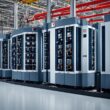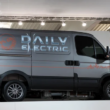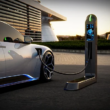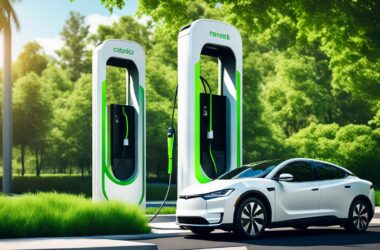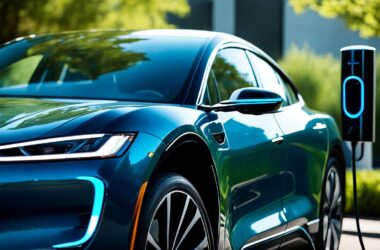Just a week after earning a spot on EV Magazine’s ‘Top 10: Executive Fleets for 2024,’ Audi has announced significant updates to its Q4 e-tron electric SUV. This move suggests a potential climb in the rankings for the stylish vehicle in the coming months.
Audi’s recent focus has been on enhancing the practicality of its electric vehicles, particularly by addressing the challenges associated with everyday use. One notable improvement is the update to the battery-cell chemistry, leading to greater efficiency in charging. Under optimal conditions, the Q4 e-tron can now charge from 10% to 80% in approximately 28 minutes, although charging times can be influenced by factors such as temperature, weather conditions, charger specifications, and driving style.
The Q4 e-tron boasts a 77 kWh net energy capacity for its wheels, and the Quattro model has seen an increase in DC charging power to 175 kilowatts—135 kW for the rear-wheel drive model. To preserve battery life, the vehicle limits charging to 80%, and it employs a smart route-planning system to optimize journeys with faster charging in mind. Additionally, the Q4 e-tron intelligently prepares the battery for DC charging using advanced thermal management.

A notable improvement to the electric drive system comes in the form of a revamped permanently excited synchronous machine (PSM), which will now be standard across all Q4 e-tron models. This enhancement contributes to a significant boost in range and power delivery for Audi’s electric SUV lineup.
In terms of performance, the Audi Q4 45 e-tron and the Audi Q4 Sportback 45 e-tron, both with rear-wheel drive, deliver 210 kW (286 PS) and can accelerate from 0 to 100 km/h (62 mph) in 6.7 seconds. The quattro versions of the Audi Q4 45 e-tron and the Audi Q4 Sportback 45 e-tron achieve the same speed in a slightly faster 6.6 seconds. The premium variants, namely the Audi Q4 55 e-tron quattro and the Audi Q4 Sportback 55 e-tron quattro, boasting 250 kW (340 PS), can sprint from zero to highway speed in just 5.4 seconds. All models now have a top speed of 180 km/h (112 mph).
However, against this backdrop of innovation, there are changes in the European electric vehicle market. Audi, along with other EV manufacturers, is facing scrutiny as the European Union introduces regulations requiring disclosure of locally sourced components in all Europe-built EVs. This new law, set to take effect in January 2024, puts significant pressure on organizations to ensure that batteries, technology, and overall vehicle innovations are locally sourced.
Failure to comply will result in a 10% tariff on the import and export of vehicles, aimed at preventing the influx of cheaply-built cars into and out of the continent. While automakers are requesting an extension to this deadline, the looming consequences could force a reduction in the production of new EVs. Limited resources for locally sourced materials may impede the electrification targets of these organizations, potentially slowing the adoption of new energy vehicles.
In their pursuit of more efficient vehicles, car manufacturers are grappling not only with legal constraints but also with the challenge of securing new resources to accelerate the electrification process. The industry is at a crucial juncture, balancing innovation with compliance to navigate the evolving landscape of electric mobility.



